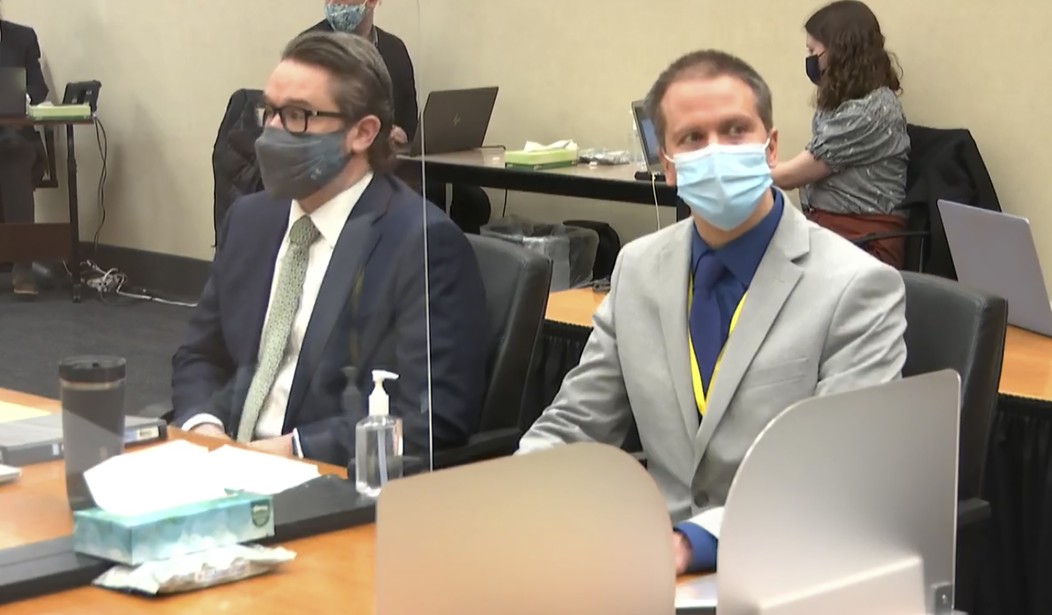Get ready for another set of trials in the Twin Cities over the death of George Floyd. A federal grand jury unsealed indictments against the four officers involved for three counts of civil-rights violations, a move signaled earlier by the Department of Justice:
A federal grand jury has indicted the four former Minneapolis police officers involved in George Floyd’s arrest and death, accusing them of violating the Black man’s constitutional rights as he was restrained face-down on the pavement and gasping for air, according to indictments unsealed Friday.
The three-count indictment names Derek Chauvin, Thomas Lane, J. Kueng and Tou Thao. Specifically, Chauvin, Thao and Kueng are charged with violating Floyd’s right to be free from unreasonable seizure and excessive force. All four officers are charged for their failure to provide Floyd with medical care. Chauvin was also charged in a second indictment, stemming from the arrest and neck restraint of a 14-year-old boy in 2017.
Thomas Lane, Tou Thao and J. Kueng appeared via videoconference in U.S. District Court in Minneapolis. Chauvin was not part of the court appearance.
The DoJ announced a week ago that they would seek these indictments, but it was not exactly a secret. Then-Attorney General William Barr reportedly balked at a plea deal for Derek Chauvin last year because he didn’t want to preclude a civil-rights probe of Floyd’s arrest and eventual death. In cases such as these, it’s hardly unusual for the DoJ to backstop with a civil-rights prosecution in case local prosecutors can’t make a case against police for murder or assault. The most famous case of this, prior to now, was the George H.W. Bush-era DoJ going after the officers involved in the Rodney King beating, although that didn’t happen until after the riots.
It’s a little more unusual for the DoJ to prosecute such a case after a successful local prosecution, though. Chauvin got convicted on all three counts, including the top count of second-degree unintentional murder that could result in a 40-year sentence. It’s more likely to be between 12-15 years under Minnesota state sentencing guidelines, but it could go higher, depending on the judge’s disposition. The federal charges could result in a life sentence, so it does have the potential for a step-up, and the other three officers have yet to be convicted of anything yet.
Still, one has to wonder just how much politics enters into this, even in the sense of making a particular example of Chauvin and the others. It’s not a question of double jeopardy — the two-sovereigns principle is well established and the charges differ enough — but more a question of diminishing returns. Will a second trial in the Twin Cities really benefit the communities here, or create more damage? And after all of the publicity from Chauvin’s trial, can the federal court provide a fair trial for any of these four? In fact, one has to wonder whether the DoJ’s indictment might interfere with the first trial of the other three defendants, which takes place in August.
Even if the decision to proceed is supportable, the DoJ’s rush to intervene is at best premature. It should have come after all four defendants had been tried, and then perhaps only deployed as a backstop.









Join the conversation as a VIP Member